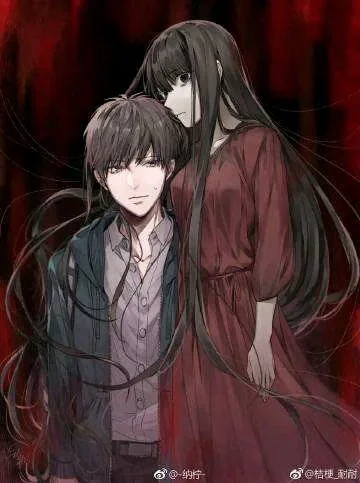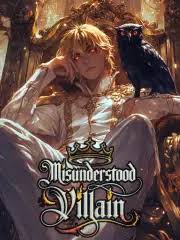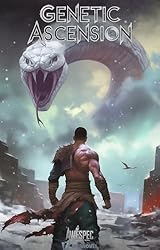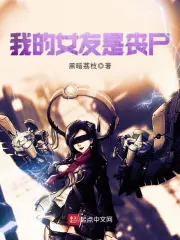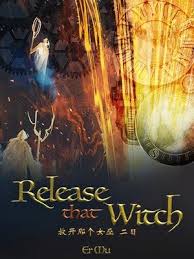The Story in 3 Sentences
Twenty-six-year-old Chen Ge inherits his family’s failing haunted house attraction called Fright’s End at an aging amusement park after his parents mysteriously vanish without a trace six months earlier under suspicious circumstances at an abandoned hospital site.
When he discovers a mysterious black phone that grants him supernatural quests to improve his haunted house, Chen Ge must complete terrifying and dangerous missions within 24 hours to unlock expanded scenarios, new skills, and actual supernatural inhabitants, all while uncovering clues about his parents’ disappearance.
As Chen Ge transforms his mediocre attraction into a genuinely haunted house staffed by real ghosts and Red Specters, he builds unexpected relationships with supernatural beings while confronting increasingly dangerous threats that blur the line between entertainment and actual horror.
Why It Stands Out
1. Horror Comedy Balance Mastery
The novel perfectly balances genuine scares with comedic moments, creating a unique horror comedy experience where readers laugh while hiding under covers. Chen Ge’s reactions to supernatural events and his practical approach to managing actual ghosts as employees creates hilarious situations without undermining the horror, particularly through his use of unconventional weapons like Doctor Skull-Cracker’s hammer and his tendency to be more terrifying than the ghosts themselves.
2. Real Ghosts as Employees Concept
Unlike typical haunted house stories with fake scares, Chen Ge’s attraction features actual supernatural beings on his payroll, including Red Specters like Zhang Ya who become genuinely invested in providing quality horror experiences for customers while protecting their boss. This innovative approach creates a fascinating dynamic where ghosts become developed characters with their own stories and motivations rather than mere antagonists, transforming the haunted house into a supernatural found family.
3- Mystery System Integration The black phone system doesn’t just provide random quests but connects directly to Chen Ge’s parents’ disappearance and larger supernatural mysteries, making each horror scenario meaningful to the overarching plot. The system features multiple mission types including Daily Missions, Trial Missions, Hidden Missions, and Specter Missions, each with different difficulty levels and rewards that contribute to both short-term scares and long-term narrative progression.
Characters That Leave a Mark
There’s Zhang Ya – the first Red Specter Chen Ge obtains from the Wheel of Misfortune, a beautiful woman with long black hair who wears a red dress and becomes fiercely possessive and protective of Chen Ge, eventually undergoing a Bloody Heart Mission that deepens their connection.
You’ll meet Fan Yu, a young boy with traumatic past who possesses the innate ability to see ghosts, serving as one of Chen Ge’s special visitors whose unique perspective and experiences help reveal deeper mysteries about the supernatural world and connect to Chen Ge’s own investigations.
And Xu Yin? He’s a specter who undergoes significant development through his Affection Mission, transforming from a betrayed spirit to someone who rediscovers his heart and becomes one of Chen Ge’s most loyal employees with a compelling emotional arc that highlights the novel’s themes of redemption and connection.
The Flaws Fans Debate
Some readers find certain horror scenarios repetitive after hundreds of chapters, feeling that the quest format can become formulaic despite creative individual scenarios, particularly in the middle sections where the pattern of introducing new ghosts and scenarios becomes predictable.
Critics note that the romance elements between Chen Ge and Zhang Ya can feel underdeveloped compared to the strong friendship and employee relationships with other supernatural beings, with some emotional beats receiving less attention as the story prioritizes horror and mystery elements.
The pacing occasionally suffers when switching between comedy and genuine horror, with some fans preferring more consistent tone throughout individual arcs, though others appreciate this balance as a distinctive feature that prevents the story from becoming overly grim.
Must-Experience Arcs
Ch. 1-100: Haunted House Foundation Arc – Chen Ge discovers the black phone system, completes his first supernatural quests including fixing mannequins and the “Another You in the Mirror” mission, and begins recruiting actual ghosts as employees for his failing attraction while developing his Mortician’s Make-up ability.
Ch. 400-600: Red Door Mystery Arc – The investigation into the world behind the red door reveals connections to Chen Ge’s parents while introducing major supernatural threats and allies, featuring missions like the Third Sick Hall (3 Star) and Coffin Village (3 Star) that significantly expand the supernatural lore.
Ch. 1000-1215: Final Confrontation Arc – All mysteries converge as Chen Ge faces the truth about his parents’ disappearance while protecting his supernatural family and resolving the larger supernatural conspiracy, culminating in the Castle of Nightmares (5 Star) and The Game of Curse at Xin Hai’s Central Hospital (4 Star) missions.
Killer Quotes
“When I’m walking in the darkness, I’m the scariest ghost story in this city.”
“If I am really forgotten in my nightmare one day, then I will push open all the red doors and paint across the black sea so that all the eyes that have gotten used to the darkness may see the light.”
“Who’s never absorbed nutrients at a grave? Who’s never grown from flesh? I have seen plenty of hells, and because of that, I have to find heaven!”
Cultural Impact
Pioneered the horror comedy subgenre in Chinese web novels, proving that genuine scares and laugh-out-loud moments can coexist effectively, with many reviewers noting it successfully blends “relentless suspense, pitch-black humor, and a creeping dread that lingers long after the lights go out.”
Influenced other horror system novels to focus on character relationships and emotional investment rather than just escalating supernatural threats, particularly through its development of ghost characters with detailed backstories and emotional depth.
Generated extensive fan discussions about the ethics of employing supernatural beings and treating ghosts as family members rather than tools, with readers passionately debating Chen Ge’s methods and relationships with his spectral employees.
Achieved remarkable commercial success with over 17.27 million views on Qidian, a 9.2/10 rating from 608 reviewers, and maintaining top rankings on Chinese web novel platforms despite the horror genre’s niche status.
Final Verdict
Start Here If You Want:
Horror comedy that genuinely balances laughs with legitimate scares through creative supernatural scenarios and character interactions spanning over 1200 chapters, featuring a protagonist who becomes increasingly formidable while maintaining his humanity.
A mystery system novel where supernatural quests connect meaningfully to character development and overarching plot rather than random power progression, with the black phone system serving as both game mechanic and narrative device that reveals deeper truths.
Unique premise of managing real ghosts as employees while building genuine relationships with supernatural beings who become found family, creating emotional stakes beyond typical horror stories.
Study If You Love:
Creative horror concepts that explore the business side of supernatural entertainment while maintaining genuine emotional stakes and character growth, examining what happens when authentic horror becomes a commercial product.
Character-driven supernatural stories where ghosts and specters have distinct personalities, motivations, and relationship dynamics with human protagonists, transforming traditional horror elements into complex characters.
Mystery plots that gradually reveal larger conspiracies through individual horror scenarios while building toward satisfying revelations about family secrets, particularly how personal history intersects with supernatural phenomena.
Avoid If You Prefer:
Pure horror without comedy relief or lighthearted moments that might break tension during scary sequences and supernatural encounters, as the novel deliberately alternates between terror and humor.
Fast-paced action without extensive character development between supernatural beings and detailed exploration of ghost employee relationships, as the story invests significant time in developing its large cast.
Horror stories without system mechanics, quest structures, or gamification elements that might feel artificial in supernatural settings, as the black phone’s mission system is fundamental to the narrative structure.
